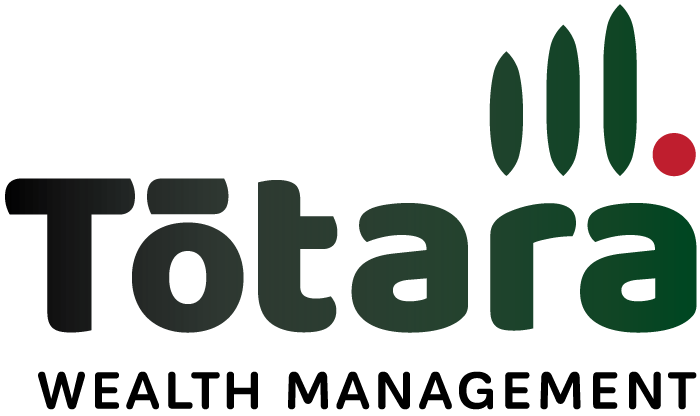Coronavirus has dominated discussion of the immediate economic outlook. At the moment, the consensus’ view (as expressed by, among others, both Australia's and New Zealand’s central banks) is a short, limited impact on local and global economic activity. But nobody can be sure. Equity markets have made gains regardless, but bonds have also gained as more worried investors have played it safe. Assuming the virus’ effects are indeed modest, the global economy is in reasonable shape to support risk assets, while income-oriented sectors like property and infrastructure are likely to continue to benefit from ongoing low cash and bond yields. In New Zealand, it looks as if the economy (again assuming only a transient virus hits) is picking up from a slow patch.
New Zealand Cash & Fixed Interest
Short-term interest rates are unchanged, reflecting the Reserve Bank’s decision on Feb. 12 to keep the official cash rate or OCR steady at 1.0%. Ninety-day bills are yielding 1.22%. Year to date, longer-term yields have moved lower, closely following the coronavirus-influenced trend in the U.S. bond market: the local 10-year yield dropped from 1.65% at the start of January to a low of 1.23% in early February, and has risen more recently to its current 1.4%. The New Zealand dollar is lower, partly due to the impact of safe haven demand for U.S. dollars pushing the kiwi down against the greenback from 67.35 cents at the start of the year to 64.4 cents now. Overall the kiwi is down by 2.9% in overall trade-weighted value.
While there is still a chance that the Reserve Bank might lower interest rates if the effects of the coronavirus begin to get worse, both forecasters and the futures market think a more likely scenario is that the OCR will be kept at 1.00% throughout this year. Returns from bank deposits will remain low.
Property & Infrastructure
The S&P/ NZX All Real Estate Index had delivered a year to date total return of 2.2%, a bit less than the 3.0% return from the overall share market.
The A-REITs have done very well year to date. The S&P/ASX 200 A-REITs Index has delivered a total return of 9.3%, ahead of the overall share market’s strong 6.7%.
Global property has also done well, and the FTSE EPRA/ NAREIT Global Index in U.S. dollars is up 3.1% in capital value, the same as the gain for the MSCI World Index of global equities.
The S&P Global Infrastructure Index in U.S. dollars year to date has done well, with a net return (capital growth and taxed dividend income) of 3.8%, ahead of the 3.2% return from the MSCI World Index. Hedging the index into New Zealand dollars improved the return to 5.7% in local currency terms.
Australasian Equities
New Zealand shares have shadowed the global pattern of a strong start to the year, followed by a coronavirus setback in later January and early February, and then a more recent revival, which has taken shares back above their pre-coronavirus highs. Year to date, the S&P / NZX50 index is up 3.0% in capital value and in total return (dividend payouts are still very low this early in the year).
Australian shares have shown a very similar pattern, although prices have not yet risen above the pre-virus peak on Jan. 19. The S&P/ASX200 Index is up 6.7% in capital value and in terms of total return (again, too early for meaningful dividend distributions).
International Fixed Interest
The main driver of global fixed-interest returns has been concern over the coronavirus outbreak. Bond yields across the developed world remain below the rate of inflation, meaning that investors who hold them are losing purchasing power (even before paying tax) with little chance of an improvement on the horizon.
International Equities
World equity markets started the year strongly up to mid- January, but subsequent fears about the impact of the coronavirus outbreak led to a sell-off in the second half of January and into early February. More recently, the markets have become more optimistic (whether this is a good or bad thing remains to be seen), and share prices have risen back above their previous mid-January peak.
Year to date, the MSCI World Index of developed markets in U.S. dollars is up 3.1%, although the outcome was heavily dependent on the strong U.S. market: ex the U.S. the index was marginally lower, by 0.2%. The emerging markets have been especially leveraged to both world trade and commodity prices, which are both at risk from the virus, and have been relatively out of favour. The MSCI Emerging Markets Index in U.S. dollars is down 0.7% year to date.
While the coronavirus has overshadowed most other issues, it is worth remembering that, before the virus emerged as a threat, the world economy was in good shape. Now, the forecasting consensus appears to be that the virus will have a limited global impact, both in magnitude and duration, but nobody can be sure.
DISCLAIMER: All care has been taken in preparing this information but to the extent that it is based on information received from other parties no liability is accepted by MorningStar or Totara Wealth Management for any errors or omissions. Morningstar and Totara Wealth Management give neither guarantee nor warranty nor make any representation as to the correctness or completeness of the information presented. Past performance is no guarantee of future performance. The material contained on this website is for general information purposes only and is not intended as, nor capable of being, financial advice or advice on any specific problem or any particular situation. Please read our full disclaimer.
